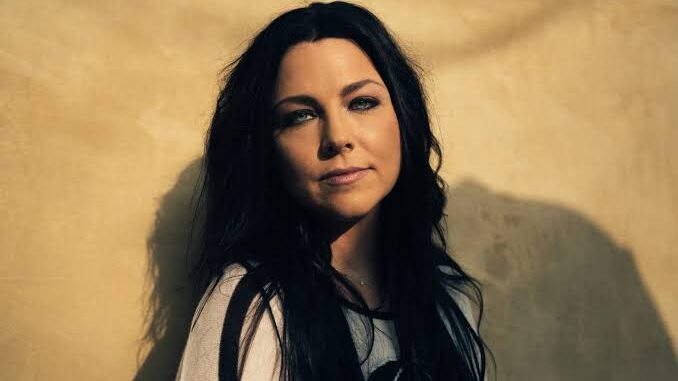
Few voices in modern rock have carved a legacy as distinct and powerful as Amy Lee’s. As the lead vocalist and creative force behind Evanescence, she brought a haunting beauty to the heavy music scene—one that balanced vulnerability with strength, darkness with light. Her journey, and that of her band, is one of perseverance, artistic conviction, and an unwavering refusal to compromise.
Evanescence emerged in the early 2000s like a thunderstorm in the middle of a pop-saturated sky. Their breakthrough single, “Bring Me to Life,” was a jolt—melding orchestral arrangements with metal riffs and Amy Lee’s operatic vocals, it sounded like nothing else on the radio. Their debut album, Fallen, released in 2003, was an instant success, selling over 17 million copies worldwide and earning two Grammy Awards.
But what made Evanescence stand out wasn’t just their sound—it was their sincerity. Amy Lee’s lyrics spoke of grief, resilience, inner torment, and the strength to rise through it. While the rock world was still largely dominated by male voices, she offered something different: raw emotion presented with elegance and power. She didn’t scream to be heard—she sang, and the world listened.
Yet success came with its own set of challenges. As the band was thrust into the global spotlight, internal struggles and industry pressures began to weigh heavily. Co-founder Ben Moody departed during their first world tour, and Lee was forced to fight for creative control in an industry eager to mold her into something more palatable. Through it all, she stayed true to her vision.
That vision continued to evolve. Their sophomore album, The Open Door (2006), expanded the sonic palette even further—darker, more experimental, and deeply personal. Though less commercially dominant than their debut, it solidified Evanescence’s identity as more than just a moment in time. It proved they were artists with staying power.
Over the years, lineup changes and long periods of silence led some to wonder if Evanescence would fade into nostalgia. But Amy Lee refused to let the band’s legacy be defined by its early years alone. She released Evanescence (2011), an album that leaned further into symphonic metal and showed her growth as a songwriter and producer. Later, with Synthesis (2017), she boldly reimagined their past work with orchestras and electronics—bridging the past with the present in a move that was as daring as it was poetic.
Behind the scenes, Lee had grown into a multifaceted artist. She composed music for films, collaborated with artists across genres, and became an outspoken advocate for women in music production—a role often dominated by men. Her insistence on taking control of her creative direction, from vocals to video to business decisions, set a precedent in the industry.
Part of what makes Amy Lee’s story so compelling is her resistance to spectacle. In a world that often rewards flash over substance, she remained grounded, letting her music speak for itself. Whether performing in front of symphonies or headlining metal festivals, her presence was consistent—intense, graceful, and genuine.
Today, Evanescence is more than a band. It’s a statement about what can be achieved.

Leave a Reply